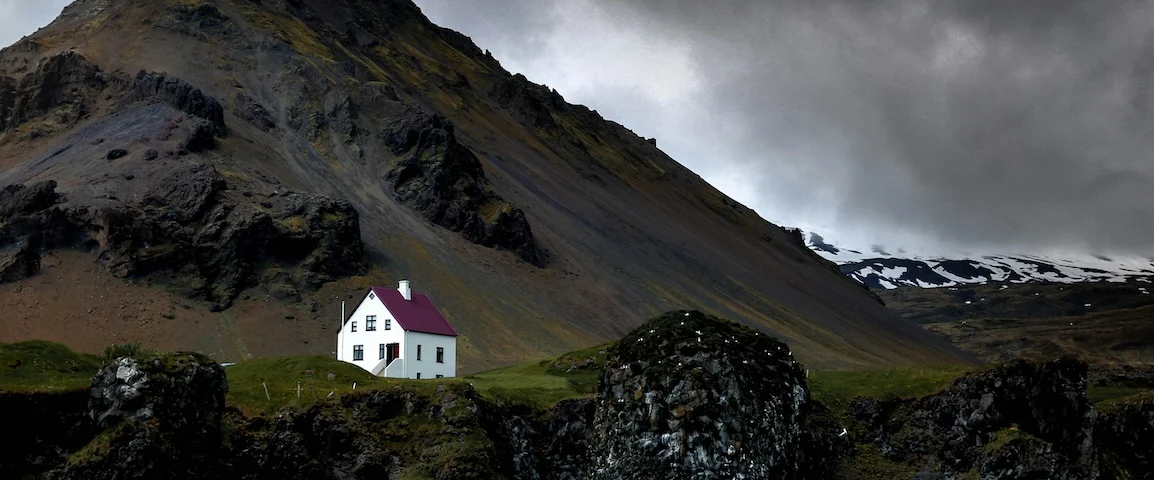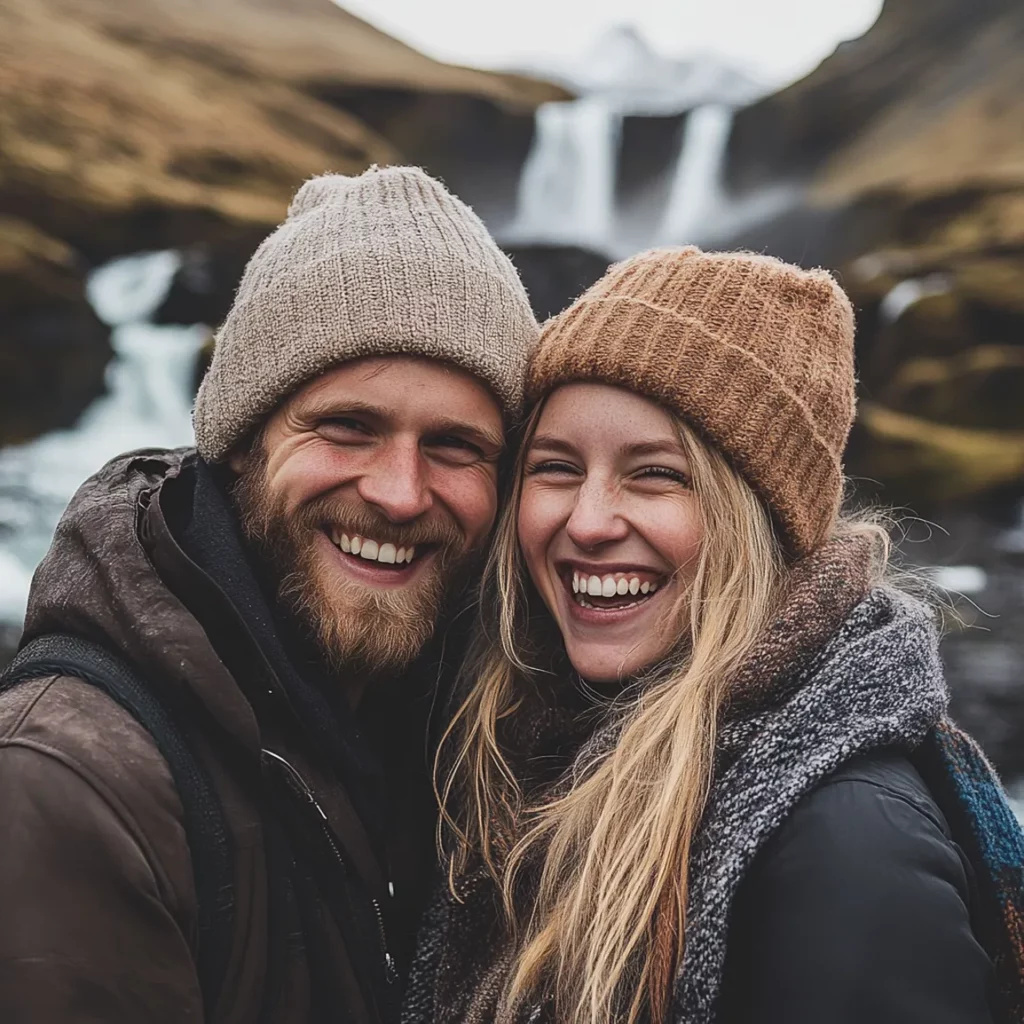Home > Iceland Backpacking Trips: What You Need to Know

Iceland Backpacking Trips: What You Need to Know
Iceland is a dream destination for backpackers around the world. With its rugged landscapes, incredible waterfalls, and unpredictable climate, it's a thrilling adventure.
Many foreigners can stay in Iceland for up to 90 days without a visa (such as US and UK, Australian, and Canadian citizens). But what if you're looking to spend more than 90 days there?
Also, what do you need to know for long backpacking trips to Iceland?
This article will give you an overview of the must-know information, from permits and insurance to useful tips, that way you can move forward with your preparation, planning, or wherever you are in the decision-making process!
Should you backpack through Iceland?
Iceland is a highly sought-after destination for backpackers - no two days look the same.
This country has some of the most diverse landscapes you will see, from volcanoes and hot springs to glaciers and dramatic coastlines. It's easy to see why it's such a popular destination.
Iceland, while rugged outdoors, is an extremely modern country, giving you access to modern amenities AND adventurous landscapes. It marries the two beautifully, which is sort of the dream deal for backpackers.

Long stay visas and residence permits
Citizens of the US, Canada, the UK, and the EU/Schengen area can stay in Iceland for up to 90 days within a 180-day period without a visa. If you want to stay beyond this limit or are a citizen of a country that isn't visa-exempt, you will need to apply for the appropriate permissions.
Most foreigners looking to spend more than 90 days in Iceland will need to apply for a residence permit. The application process involves multiple steps, though it's fairly straightforward once you know the basic timeline.
We've written a guide all about long stays in Iceland here. This article will tell you all about the process.
Keep in mind that backpackers are in a unique situation because European countries don't offer visas or permits dedicated specifically to backpackers. However, it doesn't mean you can't apply.
Budgeting for a backpacking trip
Unfortunately, Iceland is notorious for being expensive, but with some planning, you can make an extended trip more affordable:
- Camp instead of staying in hotels: Iceland allows wild camping in many areas, and there are budget-friendly campgrounds. If you are applying for a visa/residence permit, make sure that the place you choose will suffice if you have to show proof of accommodation.
- Cook your own meals: Grocery stores like Bónus and Krónan offer cheaper food options than dining out.
- Work in exchange for accommodations: Websites like Workaway and WWOOF Iceland list opportunities to work on farms or hostels in exchange for room and board. Make sure you're following any and all visa/permit rules.
- Travel off-peak: Visiting in shoulder seasons (spring and fall) can help you save on accommodation and avoid crowds. Keep in mind that the weather can be unpredictable (and cold), so factor that into your planning too.

The best time to backpack in Iceland
- Summer: Midnight sun, warmer weather, and the best time for camping and hiking. Keep in mind it's also the busiest and can be the most expensive since it's the height of tourist season.
- Autumn: Fewer tourists, the northern lights start appearing, but there are cooler temperatures, which can be iffy if you're planning to camp.
- Winter: Harsh weather, limited daylight, and road closures, but incredible northern lights and ice-cave tours. These aren't ideal conditions for camping and you will likely need to bring a lot more gear to ensure your warmth and safety if you're spending time outdoors. However, there are far fewer tourists.
- Spring: Increasing daylight, melting snow, and still a chance to see the northern lights. Temperatures will still be cold, but conditions are typically less harsh than the winter months.
How to get around in Iceland
Getting around Iceland for an extended period can be challenging without spending a fortune. However, there are options for backpackers.
- Buses: The local bus system connects major towns, and long-distance bus companies operate in the summer since it's peak tourist season.
- Car rentals & camper vans: For flexibility, renting a campervan can be cost-effective for groups. Depending on how you want to see the country, a car might be your best bet, even if it is a pricey choice.
- Cycling: Some adventurous backpackers bike across Iceland, though strong winds can be a challenge, as well as making sure you keep warm.

Camping and accommodations for backpackers
Camping is the most budget-friendly option for long-term backpackers in Iceland.
While you may see that wild camping is allowed in Iceland, it generally is not. If you have a campervan or car, you will need to rent a camping space. You can also stay on private property with explicit permission from the owner.
When it comes to camping in a tent, you need to rent a camping space. You are allowed to camp on uncultivated land for one night (as long as there isn't a campsite nearby and there aren't any signs forbidding it).
Don't forget to...
Insure your backpacking trip. Get comprehensive Icelandic coverage (including search and rescue) 100% online.
Luckily, Iceland is full of campgrounds, and most of them also have bathrooms and electricity, making the experience much more comfortable for backpackers.
Do keep in mind that most campgrounds in Iceland are only open during the summer. So, if you're planning an off-season trip, this could be an issue.
Safety and sustainability
One of the most important things you can do is take measures to make sure you are safe and secure during your backpacking trip. It's also your responsibility to respect Iceland’s fragile ecosystem.
- Leave no trace: Pack out all trash and avoid disturbing wildlife and local flora.
- Follow weather alerts: Iceland’s weather is unpredictable, so make sure you look at the forecast regularly and turn on any local weather alerts. Have backup plans.
- Emergency contacts: Dial 112 for emergencies and register your trip with local safety services.
- Have a plan: If you are planning to be in a remote location during your trip, make sure you have all of the gear you need and plan for the unpredictable.
- Tell a friend: Give a friend or family member your itinerary so they know where you are going to be and when they can expect to hear from you. This way, if something happens, a loved one will be able to get you help as soon as possible.
- Take out comprehensive travel insurance: If you get an injury or lost during a hike, travel insurance will be there to help.
- Respect local laws: Adhere to camping restrictions and stay on marked trails to prevent erosion. Follow any and all rules and regulations

